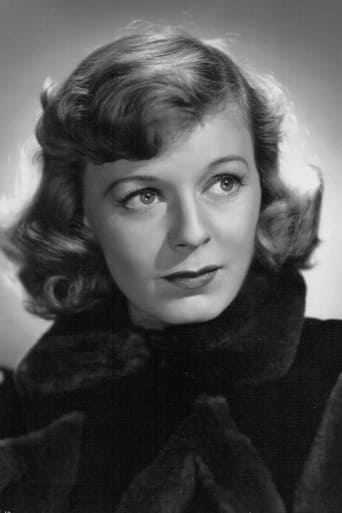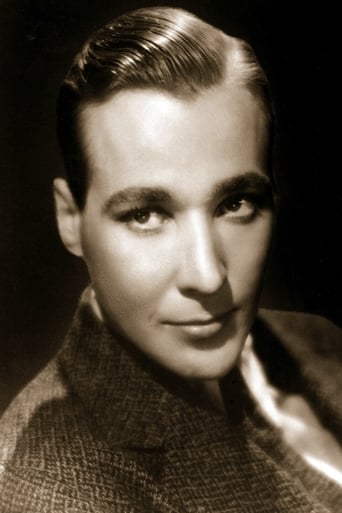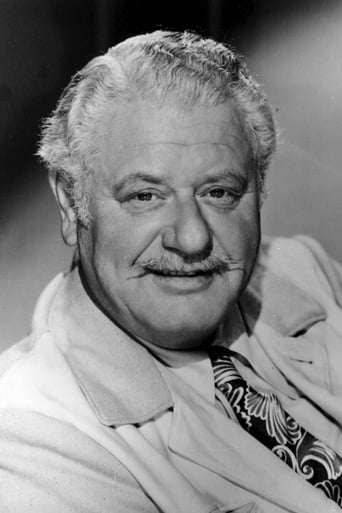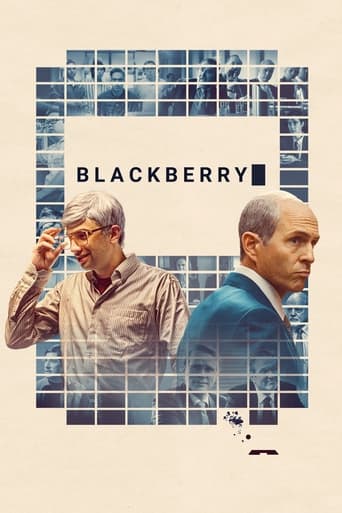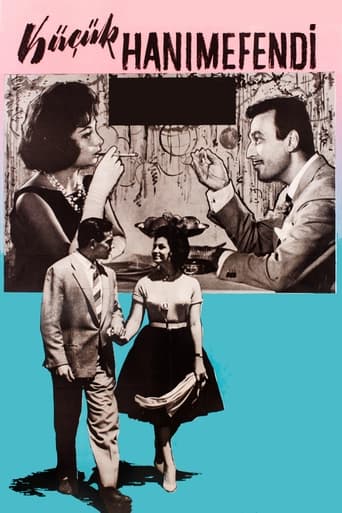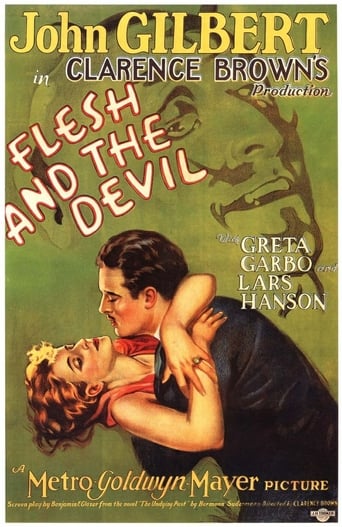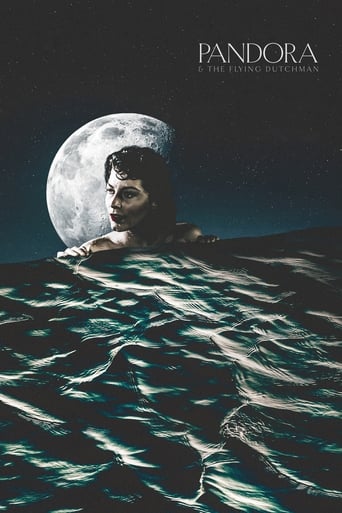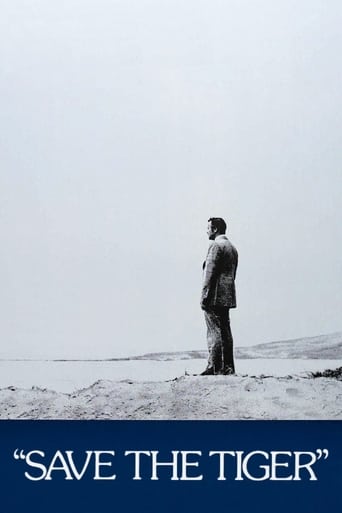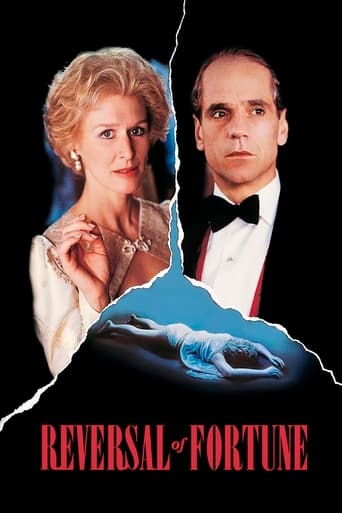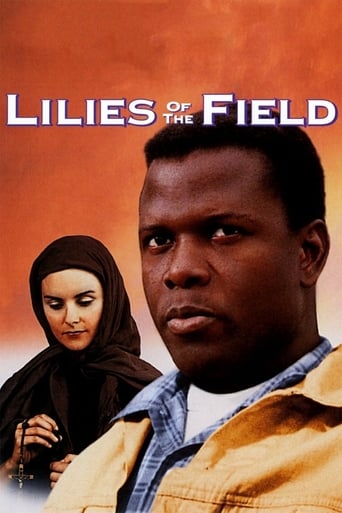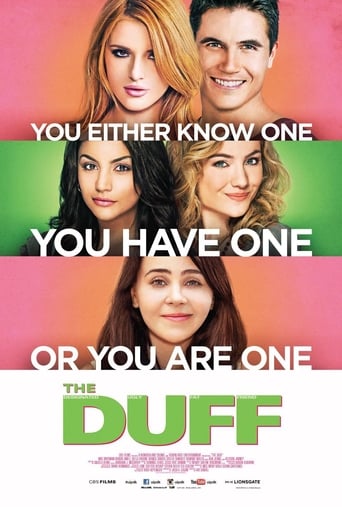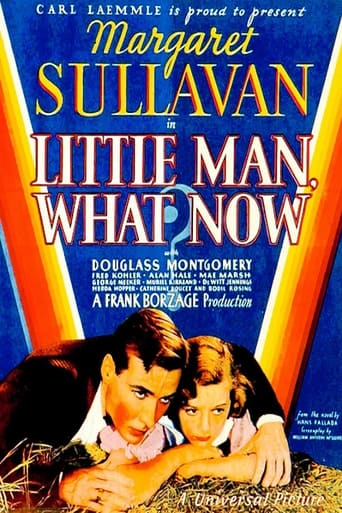
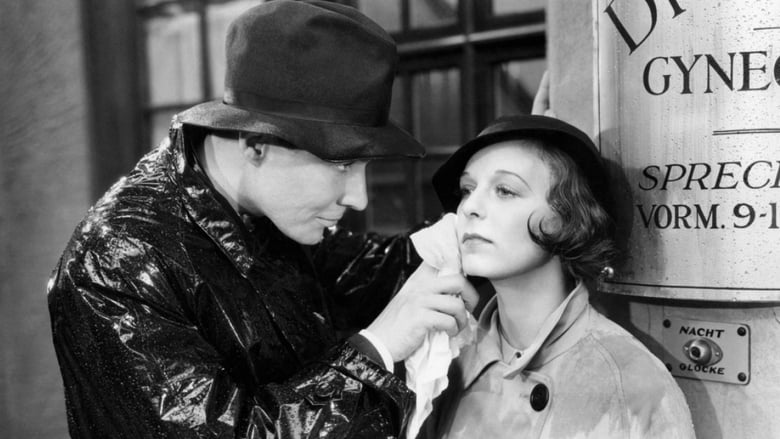
Little Man, What Now? (1934)
A young couple struggling against poverty must keep their marriage a secret in order for the husband to keep his job, as his boss doesn't like to hire married men.
Watch Trailer
Cast


Similar titles
Reviews
I see that the German cinema did a version of Little Man What Now a year before this Universal Picture came out. Depending on exactly when Dr. Goebbels took over their movie industry the message would have been far more polemic than here. I could see this as good material for either a Nazi inspired film or a left wing one.But Frank Borzage as director always seems to concern himself with the plight of young lovers, the truly innocent of the world and how forces around them are buffeting their chances at happiness. Which seems to be a capital sin in Borzage films.A lot similarity between this one and later Borzage works like Three Comrades and The Mortal Storm which also starred Margaret Sullavan. In Little Man What Now Douglass Montgomery and Margaret Sullavan are a pair of young marrieds who just can't seem to get traction enough for Montgomery to earn a living and support Sullavan and the baby coming. As things go from bad to worse Montgomery is tempted to seek radical politics of some kind.My favorite scene in the film concerns poor Montgomery waiting on a self centered cinema star in the department store where he is currently employed. Alan Mowbray is unforgettable in that one scene. Interesting showing a the indulgences of a selfish man can have such an effect as Montgomery's job is on the line.Even now too many of us live two paychecks from the gutter and too many of us are tempted by demagogues as a result. In that way Little Man What Now is still a very relevant film.
Many of the Hollywood moguls were sentimental about their European backgrounds and Carl Laemmle Jnr, whose father had emigrated from Germany and founded Universal Studios, thought "Little Man, What Now?" would make (with Frank Borzage in the director's chair) a topical but romantic drama. The book, by Hans Fallada, had already been turned into a German movie. Margaret Sullivan and Douglass Montgomery were to be the stars. Opinionated, stage trained Sullivan had a very low opinion of Hollywood and her movies in general but this was a film she always liked. Apparently there was not much rapport between her and Montgomery but fortunately it didn't show on the screen. "Little Man, What Now" had a lot in common with D.W. Griffith's "Isn't Life Wonderful" (1924) as it attempted to show young Germans coping with the depression caused by World War 1.Johannes (Douglass Montgomery) has a problem - he is employed by Emil Kleinholtz (DeWitt Jennings) who only employs single men so his plain daughter Marie (Muriel Kirkland) can find a husband. But Johannes is married already to the luminous Lammchen (Margaret Sullivan) and soon to be a father, so he must keep it a secret. Eventually he is found out and so begins the desolate search for a job. There is a gorgeous scene where Lammchen goes to the amusement park and when Johannes finds her on the merry go round she confesses that she has been too scared to go home - because she eat all their tea (salmon) on the way home.Meanwhile Lammchen has written to Johannes' stepmother and they soon find themselves living with her in Berlin. It is not the wonderful opportunity they had hoped for - she charges them exorbitant rent, the job she promised is not forthcoming and Lammchen finds herself having to fend off Holger Jackman's playful advances. Because he is played by Alan Hale, you know that underneath he is just a good hearted scoundrel and they find, in him, one of their few friends in the big city. Johannes finds a job in a department store, but once again his employment is in jeopardy. An uppity salesman (Monroe Owsley, in the type of role he played so well) sees an advertisement in the paper - "Discreet Evenings - Ladies Supplied" and as it is Johannes' address, he makes a snide remark about Lammchen. Johannes explodes as he realizes it is his stepmother!!! An afternoon with an egotistical actor (Alan Mowbray) who has come to the store not to buy but to "do research for a role" is the last straw and Johannes quits. Lammchen finds cheaper lodgings but for Johannes it is the start of a deep depression and months of joblessness, until the chance meeting of a good friend and the birth of their son shows him that life is there to be lived.I though Douglass Montgomery was absolutely brilliant in the role. He bought so much sensitivity and pathos to his role of the life discouraged Johannes who has only the unwavering love of Lammchen to pull him through. It seems the love of a good woman can make you do anything. Douglass Montgomery's career was far more patchy than Sullivans. It seemed for every excellent role he played ("Waterloo Bridge" (1931), "Little Women" (1933)) he was then cast in some lack lustre parts ("Music in the Air" (1934), "Lady Tubbs" (1935)). Even though his movie career petered out - he never stopped acting and had a fulfilling career.Highly, Highly Recommended.
This is a sadly unknown and obscure film classic from the 1930s and one of my own favorites of all Frank Borzage's love stories.A very sad and heartbreaking tale of a German couple surviving in a Nazi-occupied town in 1920s Germany, "Little Man, What Now?" was the first Borzage film to attack Hitler and the horrors of Nazism, prefiguring the director's later anti-Nazi masterpieces like "Three Comrades"(1938), "The Mortal Storm"(1940) and "Till We Meet Again"(1944)."Little Man" is a painfully realistic and terrifying experience, especially the second half; and yet strangely full of hope and affirmation. Margaret Sullavan is as always luminous and touching in her portrayal of Lammchen Pinneberg. It is interesting to compare "Little Man" with Sullavan's other Borzage films like "Three Comrades" and "The Mortal Storm." There's something about her sweet innocence, devotion, and luminosity that works well with Borzage's soft-focus, anti-Nazi attitude. The glittering white dress she wears half-way throughout the film seems to suggest a symbol of light and hope (however transient) for Montgomery and against the brutal 1920s depression milieu, the same way Loretta Young's heartbreaking devotion and sweetness are intended to rescue Spencer Tracy's tough, smart-alecky personality in Borzage's 1933 masterwork "Man's Castle."As with "Man's Castle", the Depression and, particularly in this case, Nazism are less physical than a spiritual or emotional threats to Borzage's lovers. Despite the bleak, depressing reality the characters have to surpass, both "Little Man" and "Man's Castle" retain Borzage's tender touch and humanity, inviting audience forgiveness for his characters' fragility and vulnerability.This film will break your heart and should never be missed.
One of the most heartbreaking, swoon-inducing film experiences I've ever had is 1934's "Little Man, What Now?"It's about a young couple, with a child, struggling against poverty and a steady stream of bad luck in early 1930's Germany. It's an American film, but at times it almost plays like a piece of European cinema. The atmosphere is thick and the story isn't afraid to drift into areas that are a bit dark (and daring in a pre-code sense). It has a sentimental streak for sure, but the sentiment is never turned on at the expense of intelligence.Another stand out quality of the film is it's almost painfully gorgeous cinematography. The world of the film is like a dream or like something from a storybook. Sunlight shines against water and trees and grass with a pristine silvery glow. Faces are shown in the most lovely light. Margaret Sullavan, especially, is shot in a way that practically makes you fall in love with her.This is a true jewel of obscure 1930's cinema, rarely shown and, as of this writing, not available on any home video format. See it the first chance you get. It is a must for the classic movie enthusiast who feels like they've seen everything.


